Multiple Videogames That Have a Continuing Story
Video games weren't always about stories or having an epic narrative. At one period in time, video games were simply meant for play and to challenge your skills as the player for entertainment. Somewhere along the lines, video games evolved and fused the storytelling with gameplay to create the blockbusters we have today. Now, aside from the latest Tetris, it's rare that a game doesn't contain some story elements. Beyond that, however, are games that are solely driven by the story. In these games, the story is the anchor of everything that makes the game great and the makers have chosen to let you lead the way.
Over the years, many great story-based games with narratives that fracture or morph based on player decisions have hit the market. Some are less complex than others. But they all tend to engage players with meaningful character interaction.
Updated May 30th, 2020 by Meg Pelliccio: Games that utilize decision-based elements that shape the characters and storyline allow players to feel more immersed in the title, as well as enabling each playthrough to feel more personalized.
It's great to be able to discuss with friends how their playthrough transpired, discovering that they may have killed characters you didn't, or that they ended up with a different conclusion entirely. Decision-based games offer great replay value and are well worth trying if you haven't already.
15/15 Catherine: Full Body

Catherine: Full Body is a remake of the original Catherine and features additional content, such as a new character that results in even more decision-based gameplay for fans. This game is a strange, yet effective mix of puzzle, horror, and dating sim elements and offers multiple endings based on decisions made by the player.
As well as having three different women to choose to pursue while you try and survive the game, there is also more than one ending per girl, offering plenty of replay value and more opportunity for humor depending on the ending you receive.
14/15 Zero Escape: Virtue's Last Reward
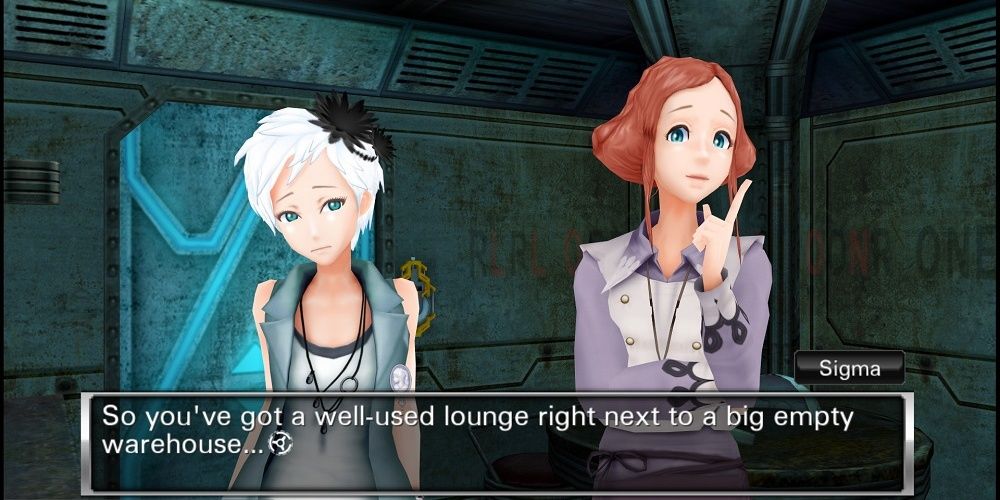
Part of the Zero Escape series, Virtue's Last Reward is the second title and offers fans similar gameplay to its predecessor. This game features two distinct types of gameplay; the visual-novel side and the puzzles of the escape rooms.
When players are in the novel portions of the game, they are faced with decisions that further the plot, most commonly being whether to ally or betray the characters you are faced with. Each decision impacts the flow of the story and ultimately the ending also.
13/15 The Dark Pictures Anthology: Man of Medan
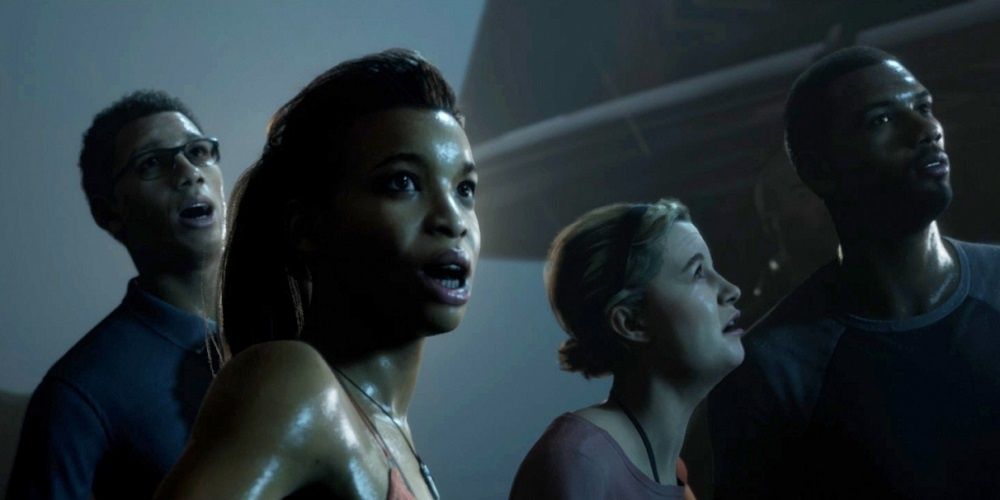
From the creators of Until Dawn comes The Dark Pictures Anthology, the first installment being Man of Medan and the next part, Little Hope, releasing later in 2020. Following on with the horror-genre, Man of Medan evolves the gameplay of its predecessor by allowing for more than one player, with players divvying up the cast of characters between them locally, or allowing online co-op play.
There are five characters in total who can either survive or die based on player choices. Seemingly, every decision impacts the game, regardless of whether it seemed insignificant at the time.
12/15 Dragon Age: Inquisition
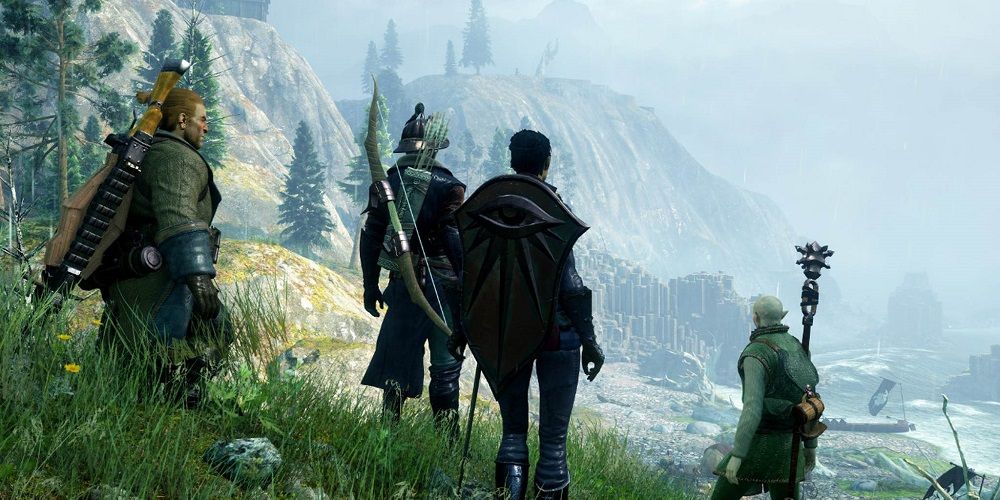
The entire Dragon Age series offers players multiple occasions where they have to make a decision; these choices can be small and change next to nothing, or they can be large plot points that go on to echo in the rest of the sequels.
Spoilers ahead! Dragon Age: Inquisition, in particular, had some tough to decisions for fans to make, such as which of your companions to leave in the fade to die, as well as who would become the next Divine -- a choice that will surely have consequences in Dragon Age 4.
11/15 Nier Automata
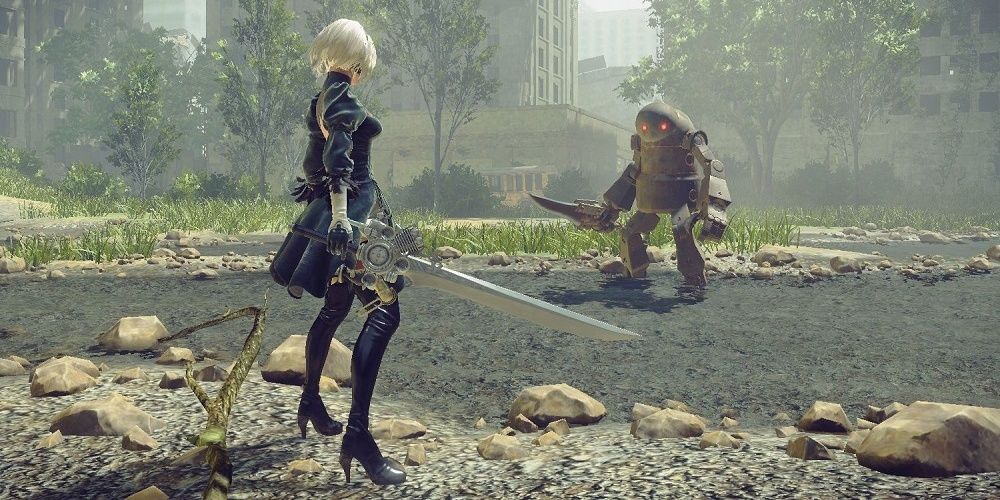
Nier Automata is the sequel to 2010's Nier, with both games offering multiple endings depending on the actions and choices of players, with some requiring multiple playthroughs in order to unlock them.
Nier Automata boasts a total of 26 endings, with some being the result of rather mundane choices such as choosing to eat a fish, to more elaborate plot decisions that affect the rest of the game. Because of the many endings available, this is a great game for players to replay to discover the various choices they can make.
10/15 Until Dawn

Perhaps, the greatest example of an interweaving story that ebbs and flows based on the player's choices is none other than the popular PlayStation 4 horror title, Until Dawn. Supermassive created a game that fans could analyze if they truly wanted to. Relationships between characters were affected by conversation choices that ultimately led to certain consequences either good or bad.
Quick-time events, or QTEs, were presented to help guide characters through moments of tension. However, completing QTEs wasn't mandatory. It was a choice, based on how players wanted to influence the events of the story. Until Dawn will be viewed as a shining example of narrative-driven games for years to come.
9/15 Telltale's The Walking Dead
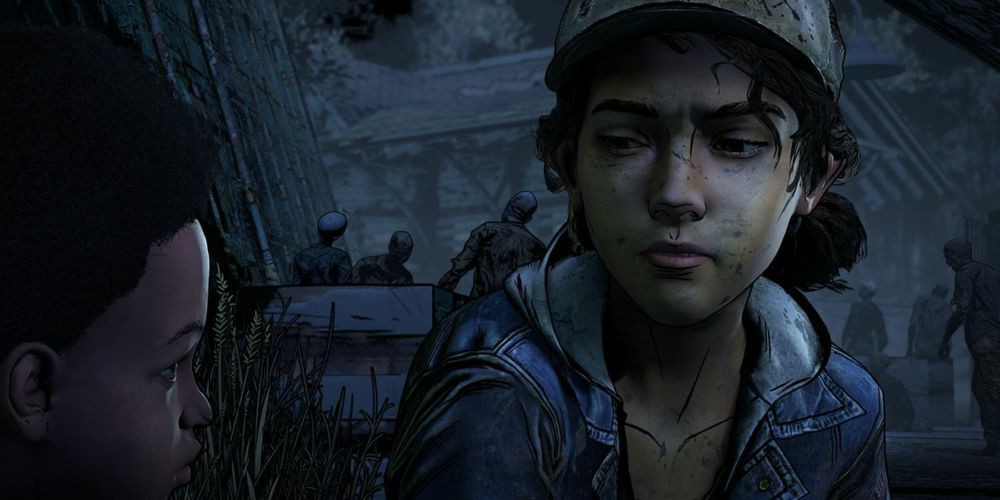
The once-dead, now recently-resurrected studio Telltale is famous for creating episodic games that are solely meant to tell stories based on player decisions. Telltale's games weren't layered like Until Dawn with abilities to see into the future on the current trajectory or to view evolving traits of the characters you were influencing.
But games like Telltale's The Walking Deaddid offer an inside look at the end of each episode of each pivotal decision and how many other gamers out there in the world did or didn't make the same choices as you. Fans enjoyed being able to see how their choices stacked up against the rest of the world!
8/15 Assassin's Creed Odyssey
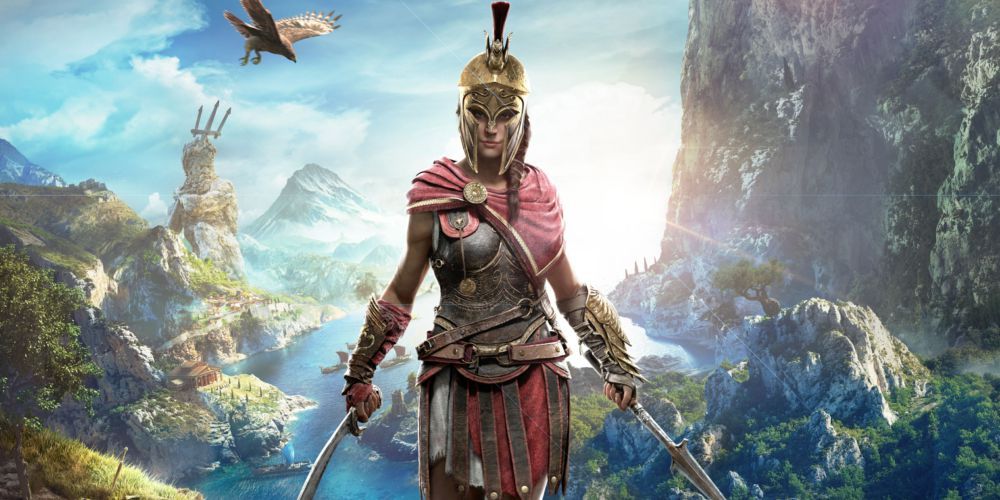
Assassin's Creed is known for its stealth and action-oriented approach to open worlds. However, it was the newest entry in the franchise, Assassin's Creed Odyssey, which dared to offer decision-making as part of the experience.
For starters, players have the option to select which Spartan sibling they'll journey with – Alexios or Kasandra. The sprawling game offers choices that affect individual missions. Some choices lead to reward and others to ruin. But now, more of the adventure is in the players' hands than ever.
7/15 Mass Effect 2

While Bioware has struggled as a studio with the recent Mass Effect: Andromeda and Anthem failures, the studio is traditionally known for its killer action-RPGs that prominently feature agency at the core of the experience. Mass Effect 2 saw players control Commander Shepard, a soldier of the distant future.
In the game, players are capable of making command decisions for Shepard's crew members aboard the Normandy that affect their relationships and actions. What made Mass Effect 2 even more thrilling was that it allowed players to carry over their Mass Effect save files to continue the story based on the choices players made in the original game.
6/15 The Witcher 3: Wild Hunt
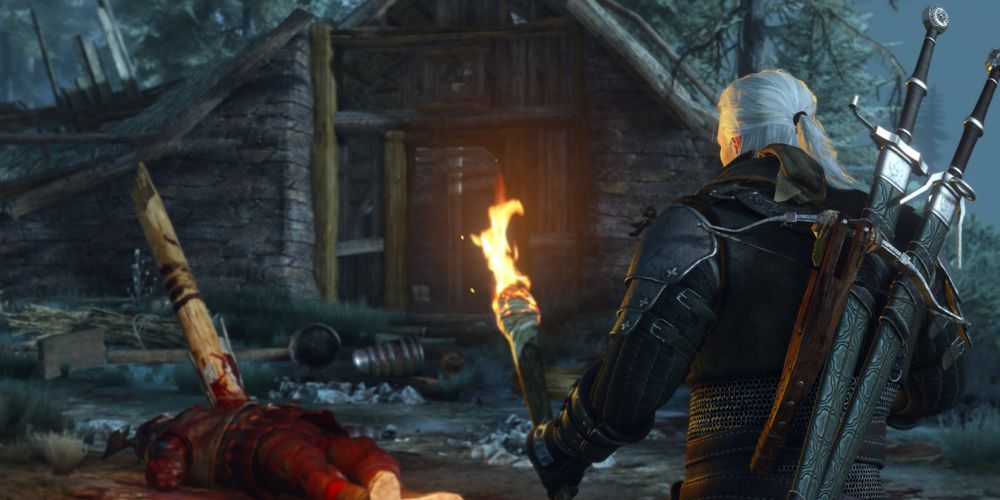
Geralt of Rivia is receiving renewed attention thanks to the release of the Netflix series. But the monster-slaying witcher made a splash with this title which debuted in 2015. The Witcher 3: Wild Hunt takes Geralt on an adventure where the action gameplay is rooted in combat elements between Geralt and mystical creatures or other human characters.
It is with the NPCs, however, that he has the opportunity to make critical decisions, ultimately affecting the livelihoods of these characters and influencing the ending to the game, of which there are many.
5/15 Heavy Rain
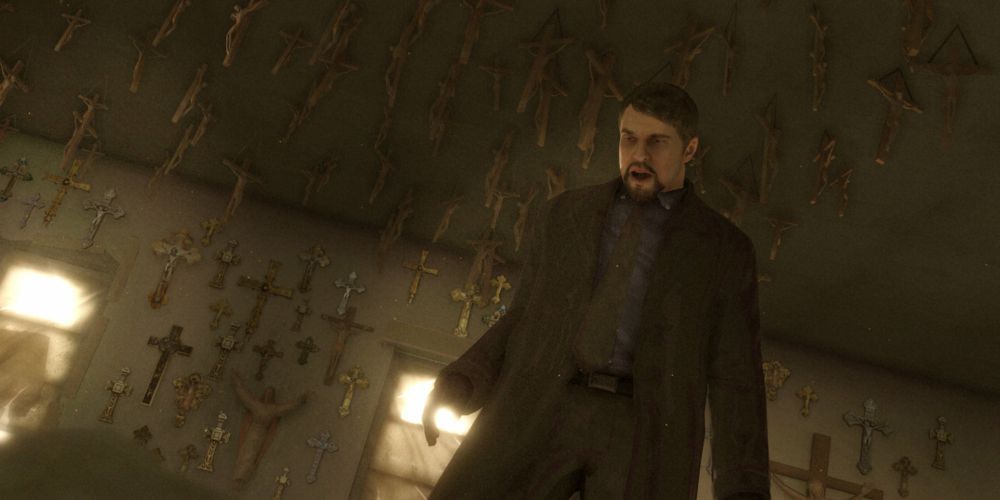
Heavy Rain thrust players into the heart of neo-noir detective thriller. Multiple characters were at play here, but it was up to the player to make decisions for each of them as they dealt with the mysterious Origami Killer.
Like any narrative-focused story, the decisions players made affected the eventual outcome. While nothing changed with regards to who the Origami Killer actually was, the discovery could either be a relief or rather tragic for all involved.
4/15 Life is Strange
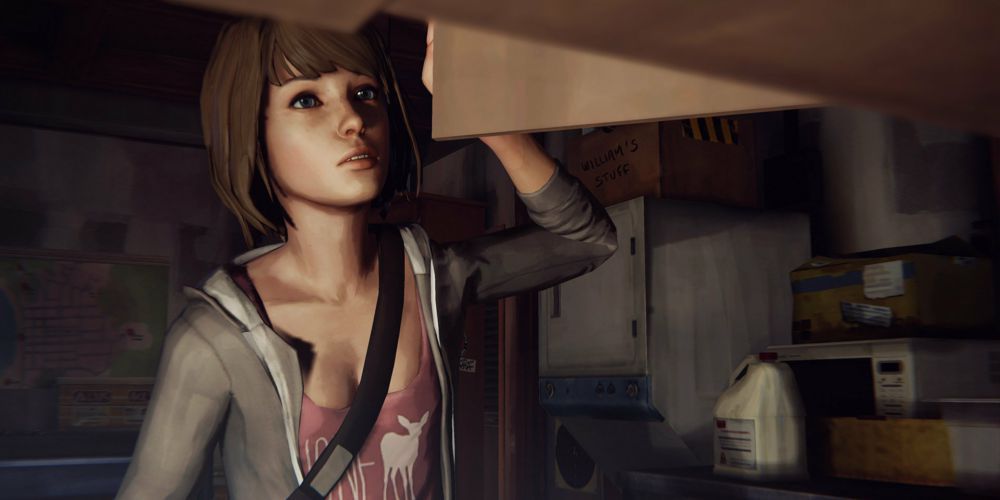
Maxine Caufield experiences the worst of teenage living in this drama from Dontnod Entertainment. In Life is Strange, Max discovers that she has the gifts of foresight and to rewind time. At many points throughout her story, Max attempts to use these gifts to stop certain actions from taking place, such as murder, bullying, or suicide among her group of friends and peers.
Of course, players can make dialogue choices for her that will eventually bear fruits whether good or bad. This episodic game received high marks for its bold storytelling and its enthralling insight into youthful tribulations.
3/15 Detroit: Become Human
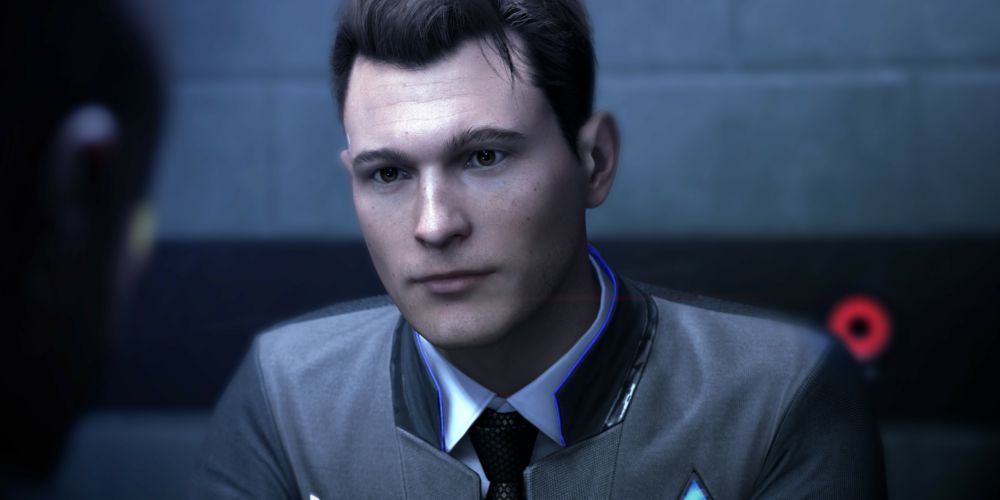
Androids certainly don't dream of electric sheep in this sci-fi thriller from the makers of Heavy Rain. Detroit: Become Human allows players to take control of three different androids each with a pre-programmed purpose. However, as this is a narrative-based game focused heavily on free agency, the story focuses on androids and their pursuit of autonomy.
One such android, Markus, is discarded as a deviant android and wades into a political battle for android rights rallying other androids for the cause. Kara is a housekeeping android destined to protect the daughter of her employer. As a result, she becomes deviant as well. Lastly, Connor assists law enforcement with investigating deviant androids and will eventually be faced with the choice of becoming a deviant himself.
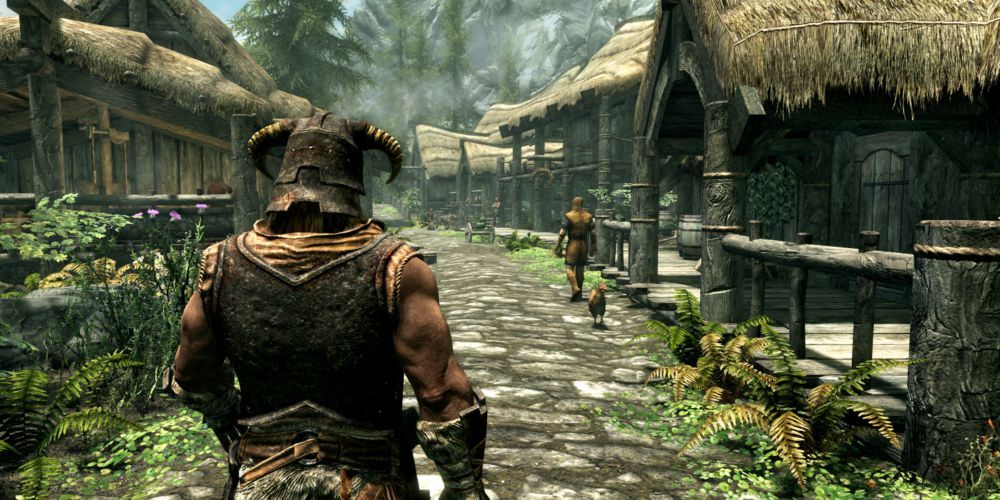
The decisions within Skyrim aren't quite as profound as some of the other choices made in games centered around free agency. However, players can embark on their quest to confront Alduin while making choices along the way that affect various side quests and stories regarding different groups of people scattered across the land.
Skyrim was remarkable for its time in allotting the player a fair amount of freedom to travel the land in whatever way they choose.
1/15 Deus Ex: Human Revolution
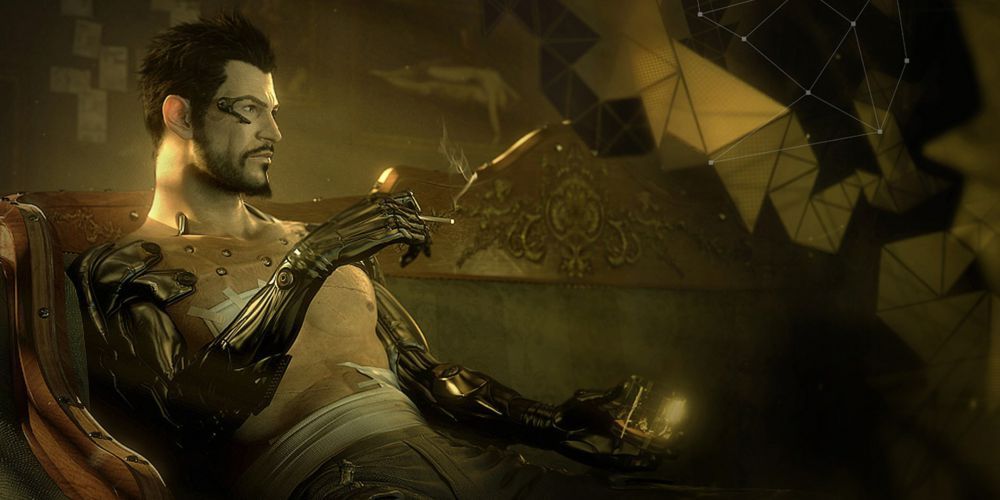
Deus Ex: Human Revolution is a cyberpunk-fueled third-person action game that puts players in the role of Adam Jensen, an ex-SWAT officer in charge of the security for Sarif Industries. In this future, humans are becoming augmented with artificial body parts to increase their capabilities or, perhaps, save their lives.
Adam falls into the latter category and is forced into augmentation after suffering catastrophic injuries during an attack on Sarif Industries. After recovering, he embarks on a quest to find his attackers as he wades into a story of shadowy figures and corruption run amok. Decisions are made by the player in a few pivotal moments that affect different story elements and tactics for infiltration or confrontation. Additionally, one decision is made at the end of the game that determines the conclusion. The decision-based elements aren't as extensive as other games, however, they are pivotal to the overall experience.
Source: https://www.thegamer.com/games-witch-branching-stories/
0 Response to "Multiple Videogames That Have a Continuing Story"
Post a Comment